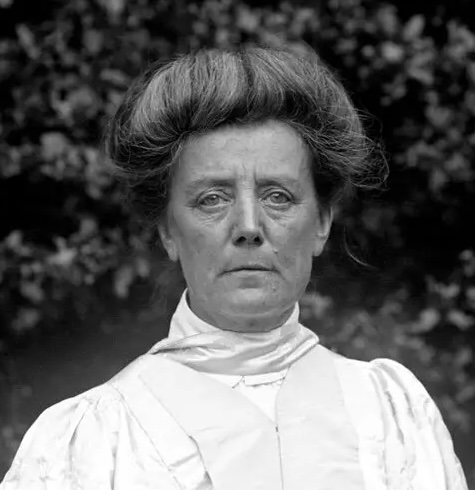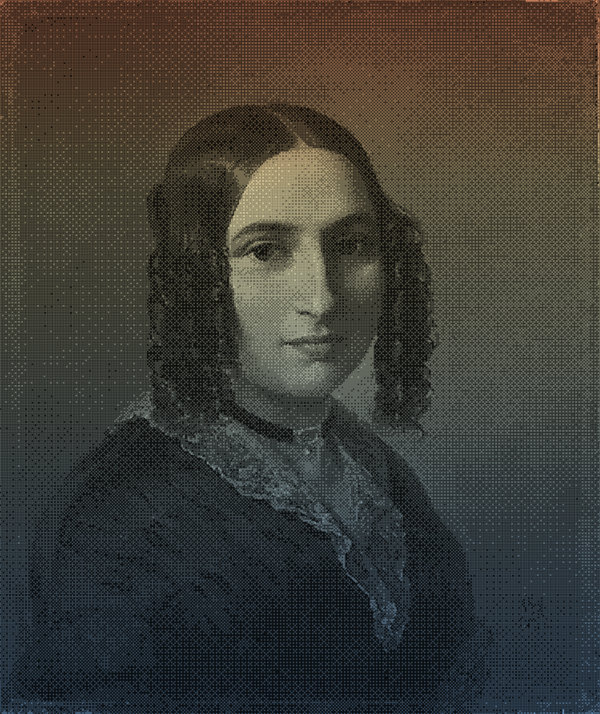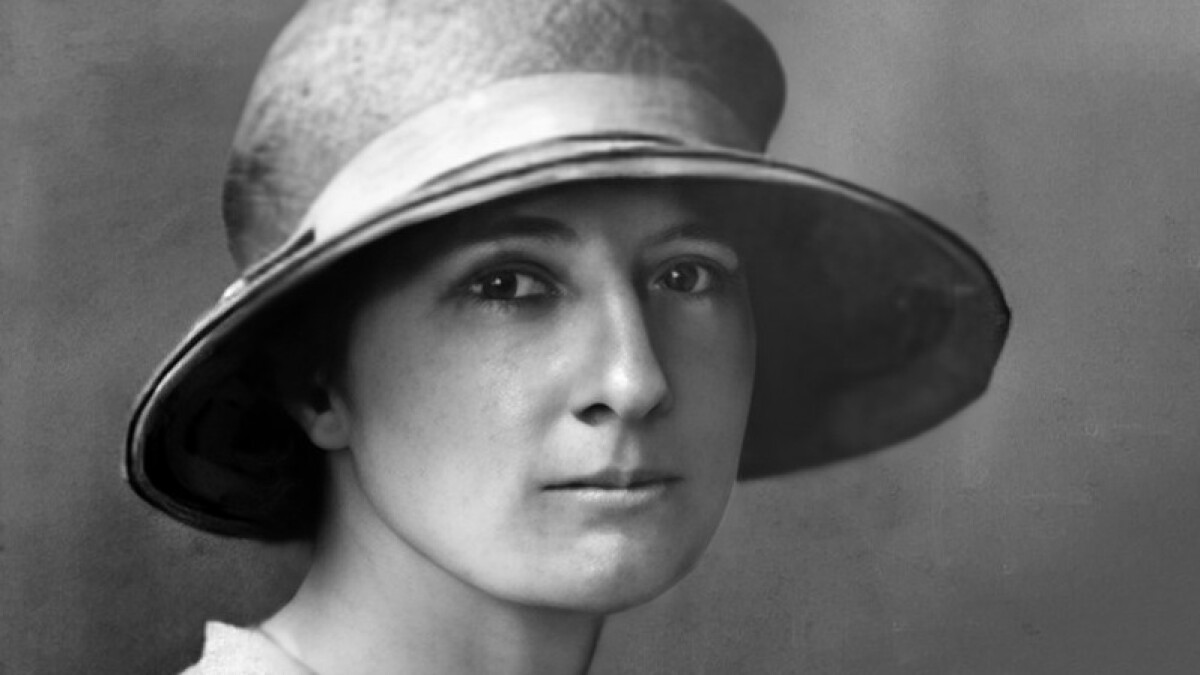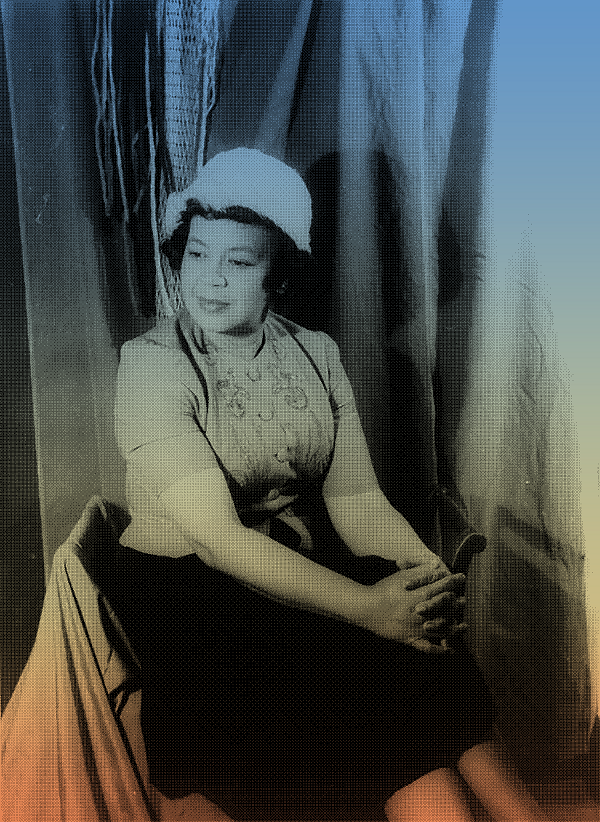Dame Ethel Smyth was a British composer, writer, and social activist who made significant contributions to many musical genres. A tireless advocate for her own music, Smyth was well-known during her lifetime and became notable not only for her compositional output but also for her service to the women’s suffrage movement between 1910 and 1913. During the First World War, Smyth served as a radiographer where she began writing her memoirs as a way of distracting herself from the horrors of the battlefield. Between 1919 and 1940 she published ten books, ranging from chronological accounts of her life to reflections on notable figures she knew, such as Johannes Brahms and Emmeline Pankhurst. Smyth wrote repeatedly about the challenges faced by women working in the music profession and, despite her successes, felt that she was never awarded the level of recognition that she deserved.
Ethel was the fourth of eight children born to John and Emma (“Nina”) Smyth. Her desire to study music was ignited by one of her more inspiring governesses who had attended the Leipzig Conservatory. However, her father, a major general in command of the Royal Artillery at Aldershot, was not supportive of his daughter’s musical ambitions and Ethel spent seven years campaigning to achieve her dream. Finally, in 1877 at the age of nineteen, Smyth succeeded in persuading her father and was escorted to Leipzig by her brother-in-law, Harry Davidson. This move was significant for Smyth, as her continental education not only aligned her with the German school of composition but also influenced her social networks.
During her Leipzig years (1877–1889), Smyth composed songs, sonatas and chamber works alongside chorales, preludes and fugues. These works reflect the training she received at the Conservatory and, more significantly, the tutelage of Heinrich von Herzogenberg, who mentored her from 1878. Heinrich and his wife Elisabeth were also significant for Smyth socially, helping her to feel at home in Leipzig and introducing her to notable figures such as Brahms, Clara Schumann and Greig. However, this period of happiness was not destined to last and the mid-1880s was a more turbulent time for Smyth. In 1884, she had fallen in love with Elisabeth von Herzogenberg’s brother-in-law, Harry Brewster, and the consequences were far-reaching. Although Smyth cut ties with Harry, Elisabeth sided with her sister and severed contact with the composer. Smyth returns to this period of her life repeatedly in her memoirs, describing the years following the break from the Herozgenbergs and the Brewsters as “the desert.”
Musically, Smyth went from strength to strength as the nineteenth century drew to a close. She made her English debut with her Serenade in D (1889) in April 1890, which was followed six months later by her Overture to Shakespeare’s Antony and Cleopatra (1889). Her Mass in D (1891) was premiered in the Royal Albert Hall in 1893, an event which would not have taken place without the support of Empress Eugenie and conductor Hermann Levi, both of whom corresponded with members of the English royal family to advocate for Smyth’s work. Her social connections in England and Germany would become an even more vital component of her success as she shifted her focus towards opera.
Harry Brewster, with whom Smyth reconnected in 1890, wrote the libretto for her first three operas and Fantasio (1892–94), Der Wald (1889–1901) and The Wreckers (1902–04) were premiered in Weimar, Berlin and Leipzig respectively. Brewster’s death in 1908 ended their collaboration and Smyth’s decision to join the Women’s Social and Political Union two years later had an impact on her creative output. As is addressed in the section below, Smyth wrote numerous songs between 1907–13 before returning to opera with The Boatswain’s Mate (1913–14). This one-act comic opera marks a shift away from the Austro-German world of her first three operas, featuring folk melodies and the melody used in her own suffrage anthem, “The March of the Women” (1910). Although Smyth had secured a premiere in Frankfurt for March 1915, the outbreak of the First World War meant that the first performance eventually took place in January 1916 at the Shaftsbury Theatre in London. Her final operas—Fête galante (1921–22) and Entente cordiale (1923–24)—were likewise premiered in her home country.
Smyth’s output following World War I is relatively small. In addition to the two operas, she composed a handful of smaller works, a Double Concerto in A for violin, horn, and orchestra (1926) and her symphonic cantata The Prison (1929–30). Pneumonia and pleurisy had almost taken Smyth’s life in November 1918, which contributed to hearing loss and may have influenced her decision to concentrate on larger works with louder performing forces in the latter part of her life. In 1922, she became the first woman composer to be awarded a damehood and received honorary doctorates from the universities of Durham (1910), Oxford (1926), and St. Andrews (1928). When she died in 1944, English newspapers hailed her as “the world’s most notable woman composer,” highlighting the recognition she had received by the end of her career. While Smyth’s music garnered limited attention in the latter half of the twentieth century, more recent interest in her output has increased awareness of her historical significance.
About the Songs
Smyth wrote songs throughout her career, yet they are often overshadowed by her operatic works. Her earliest compositions—detailed in her first memoir, Impressions that Remained (1919)–were “chants and hymns” written for her peers at school. When she moved to Leipzig in 1877, Smyth performed her own songs at social gatherings and found that they were well received. The baritone George Henschel (1850–1934) was a notable supporter and encouraged Smyth as she worked on new songs around this time. Her Lieder und Balladen, Op. 3 and Lieder, Op. 4 (C. F. Peters, 1886) were her first published works and her settings of poets such as Eichendorff, Mörike, and Heyse reflect her interest in German art song.
The first decade of the twentieth century saw another flurry of vocal works from Smyth. Four songs for mezzo soprano or baritone and chamber ensemble were composed in 1907 and published by Novello in 1909. “Odette,” “La Danse,” and “Chrysilla” were settings of the French symbolist poet Henri de Régnier (1864–1936), while “Ode Anacréontique” was a translation of an anonymous text. Smyth’s linguistic shift may have been inspired by the creation of her third opera, The Wreckers (1902–4), the libretto of which was originally penned in French and entitled Les naufrageurs.
Smyth’s involvement with the Women’s Social and Political Union sparked a number of suffrage works, including the collection Songs of Sunrise (1910), which featured her well-known “March of the Women.” While these choral works do not fit into the ‘art song’ category, they exemplify Smyth’s continuing interest in composing for the voice and mark a transition to English-language text setting. Two further collections composed in 1913—Three Moods of the Sea and Three Songs for mezzo-soprano or baritone and piano (nos. 1 and 2) or orchestra (no. 3)—were published in English with German translation.
While Smyth chose not to compose further art songs after the First World War, those that she wrote between 1877 and 1913 are rich and varied, highlighting Smyth’s linguistic dexterity and the originality of her musical voice.
—Written by Hannah Millington
Additional Resources
- Bartsch, Cornelia. “Cyclic Organization, Narrative, and Self-Construction in Ethel Smyth’s Lieder und Balladen, op. 3 and Lieder, op. 4,” In Women and the Nineteenth-Century Lied, ed. by Susan Wollenberg and Aisling Kenny, 177–216. Ashgate, 2015.
- Broad, Leah. Quartet: How Four Women Changed the Musical World. Faber & Faber, 2023. [explores the life and music of Ethel Smyth, Rebecca Clarke, Dorothy Howell, and Doreen Carwithen]
- EthelSmyth.org
- Harris, Amanda. “The Smyth-Brewster Correspondence: A Fresh Look at the Hidden Romantic World of Ethel Smyth.” Women and Music 14 (2010): 72–94.
- Lumsden, Rachel. “‘The Music Between Us’: Ethel Smyth, Emmeline Pankhurst and ‘Possession.’” Feminist Studies 41/2 (2015): 335–70.
- Millington, Hannah. “’1910’: Ethel Smyth’s Unsung Suffrage Song.” The Musicology Review, 10 (2021): 55–76.
- World premiere recording of The Song of Love, Op. 8 by the Alternative Canon Project




